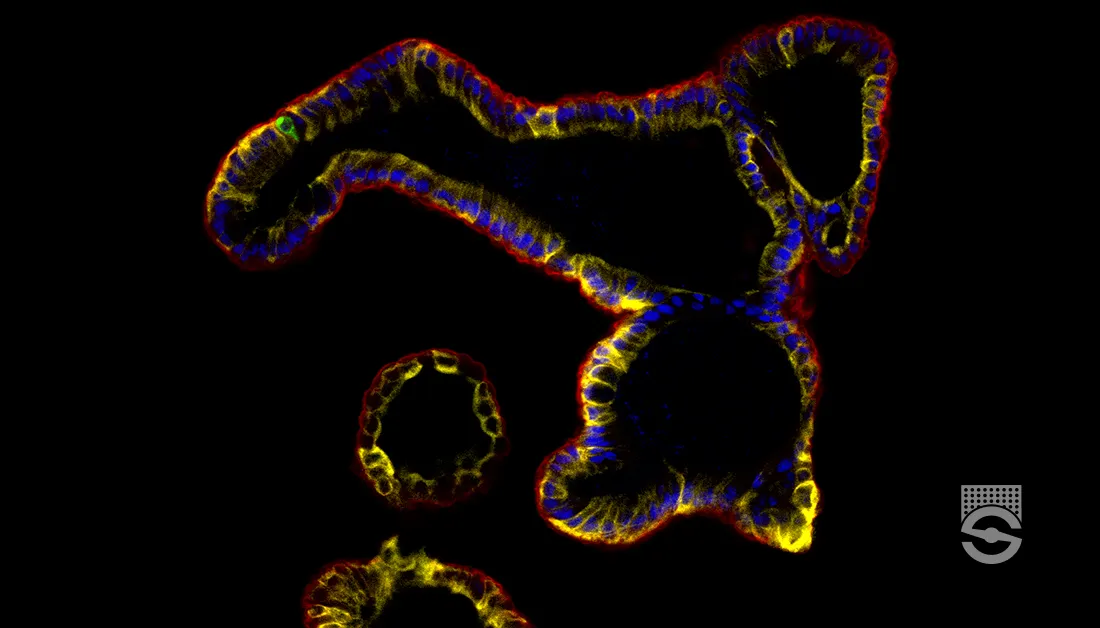Carazzi's Alum Hematoxylin
Materials
| Material | Amount | Function |
|---|---|---|
| Hematoxylin | 1 g | Dye |
| Potassium alum | 50 g | Mordant |
| Distilled water | 800 mL | Solvent |
| Glycerol | 200 mL | Stabiliser |
| Sodium iodate | 0.2 g | Oxidant |
Compounding procedure
- Dissolve the hematoxylin in the glycerol.
- Dissolve the alum in 750 mL of the water.
- Dissolve the sodium iodate in the remaining 50 mL water.
- Add the alum solution to the hematoxylin solution slowly, while mixing well.
- Add the sodium iodate solution. Mix well.
- Filter.
- The solution may be used immediately, and is stable for about six months.
Protocol
- Bring sections to water with xylene and ethanol.
- Place into the staining solution for 5 minutes.
- Rinse with water and blue.
- Rinse well with water.
- Counterstain if desired.
- Dehydrate with ethanol, clear with xylene and mount with a resinous medium.
Expected Results
- Nuclei – blue
- Background – as counterstain or unstained
Notes
- This is a progressive solution giving little background staining.
- Doubling the hematoxylin to 2 g intensifies nuclear staining.
- The double strength solution is recommended for frozen sections with about 1 minute staining time.
- Blueing is done with alkaline solutions such as hard tap water, Scott’s tap water substitute, 0.1% ammonia water, 1% aqueous sodium acetate, 0.5% aqueous lithium carbonate etc.
- In the original paper, 0.02 grams sodium iodate was specified. This would oxidize only a small part of the hematoxylin. The amount specified above would permit full oxidation.
Safety Note
Prior to handling any chemical, consult the Safety Data Sheet (SDS) for proper handling and safety precautions.
References
- Bancroft, J.D. and Stevens A. (1982)
Theory and practice of histological techniques, Ed. 2
Churchill Livingstone, Edinburgh & London, UK. - Gray, Peter. (1954)
The Microtomist’s Formulary and Guide. p.187.
Originally published by: The Blakiston Co.
Republished by: Robert E. Krieger Publishing Co.





